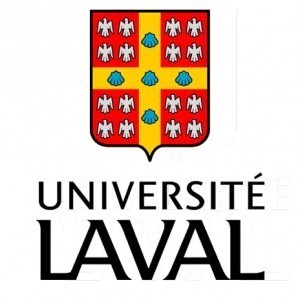Photos of university / #ulaval
The Biochemistry program at Laval University offers students a comprehensive and multidisciplinary education that combines principles from biology and chemistry to understand the molecular mechanisms underlying life processes. Designed for students interested in the molecular basis of biological functions, this program provides a solid foundation in biochemistry, cell biology, molecular biology, and related fields, preparing graduates for diverse careers in research, healthcare, industry, and academia. Throughout the program, students will explore the structure and function of biomolecules such as proteins, nucleic acids, lipids, and carbohydrates, gaining insight into how these molecules interact and contribute to the functioning of living organisms.
The curriculum emphasizes both theoretical knowledge and practical skills through laboratory work, projects, and internships, allowing students to develop competencies in techniques such as chromatography, spectrometry, electrophoresis, and molecular cloning. Students will also study areas including enzymology, genetics, metabolism, and regulatory mechanisms, offering a holistic understanding of biological systems at the molecular level. The program is designed to foster critical thinking, analytical skills, and scientific literacy, enabling graduates to pursue research careers or further specialization in graduate studies.
In addition to core courses, students have opportunities to participate in research projects facilitated by faculty members engaged in cutting-edge research. This hands-on experience prepares students for roles in laboratories of pharmaceutical companies, biotechnological industries, healthcare institutions, or academic research groups. The program also emphasizes ethical considerations and the societal impact of scientific advancements, encouraging students to consider the broader implications of their work.
Laval University's Biochemistry program is accredited and taught by experienced professors dedicated to providing quality education and mentorship. With state-of-the-art facilities and a collaborative learning environment, students are empowered to achieve their academic and professional goals. Graduates of this program are well-equipped to contribute to scientific innovation and health sciences, making significant impacts in research, industry, and medicine. Whether students plan to continue their education or enter the workforce immediately after graduation, the Biochemistry program offers the knowledge, skills, and experience needed to succeed in a rapidly evolving scientific landscape.
The Bachelor of Science in Biochemistry at Laval University provides students with a comprehensive understanding of the chemical processes that underpin life. The program is designed to equip students with both theoretical knowledge and practical skills necessary for careers in research, healthcare, industry, and academia. Throughout the program, students explore a wide range of topics including organic and inorganic chemistry, molecular biology, genetics, enzymology, and cell biology. The curriculum emphasizes the principles of biochemistry and their applications in health, nutrition, and disease.
Students gain hands-on experience through laboratory work, enabling them to develop essential laboratory skills and techniques such as chromatography, spectroscopy, and molecular cloning. The program also offers courses in bioinformatics and computational biology, preparing students to analyze complex biological data. Interdisciplinary in nature, the program encourages students to understand how biochemistry interacts with other scientific fields, fostering a multidisciplinary approach to scientific problems.
In addition to core courses, students have opportunities for specialization in areas such as structural biology, molecular genetics, or metabolic biochemistry. The program also integrates internships and research projects, providing valuable real-world experience and mentorship from faculty members who are experts in their fields. These opportunities cultivate research competence, critical thinking, and analytical skills.
Graduates of the Biochemistry program at Laval University are well-prepared for graduate studies or entry into the workforce. They can pursue careers in pharmaceutical companies, biotechnology firms, healthcare institutions, and governmental agencies. The program's strong emphasis on scientific literacy, technical skills, and research methodology ensures that students are capable of contributing to advances in science and health. Overall, the Bachelor of Science in Biochemistry at Laval University offers a rigorous and enriching educational experience that prepares students for successful careers and lifelong learning in the dynamic field of biochemistry.
Program requirements for the Bachelor of Science in Biochemistry at Laval University include completing a total of approximately 120-130 credits over the course of 3 to 4 years. Students are expected to fulfill core courses in general chemistry, organic chemistry, physics, mathematics, and biology during the initial years. Foundational courses in biochemistry, molecular biology, cell biology, and microbiology are mandatory in the intermediate years. Advanced coursework includes thermodynamics, enzymology, structural biology, and metabolic pathways, often complemented by laboratory and research projects to develop practical skills. Additionally, students must participate in seminar presentations and may be required to complete an internship or cooperative education component to gain real-world experience. Language proficiency in both French and English can be beneficial, given Laval University's bilingual context. Elective courses allow students to explore related disciplines such as pharmacology, genetics, or environmental sciences. To graduate, students must pass all required courses with a minimum cumulative grade point average (GPA) specified by the university, often around 2.0 on a 4.0 scale. Students are also expected to adhere to academic integrity policies and to participate actively in seminars and practical labs. The program emphasizes research literacy and critical thinking skills, preparing graduates for careers in health sciences, research laboratories, pharmaceutical industries, or further academic study. It is recommended that students meet regularly with academic advisors to ensure they meet all progression and graduation requirements. The curriculum is designed to provide a comprehensive understanding of biochemistry's core principles and their applications in various scientific and industrial contexts.
Want to improve your English level for admission?
Prepare for the program requirements with English Online by the British Council.
- ✔️ Flexible study schedule
- ✔️ Experienced teachers
- ✔️ Certificate upon completion
📘 Recommended for students with an IELTS level of 6.0 or below.
The financing studies for the Bachelor of Science in Biochemistry at Laval University encompass a variety of funding sources available to both domestic and international students. Generally, students are encouraged to explore a combination of government grants, scholarships, bursaries, student loans, and private funding options to support their education. Laval University offers several scholarships specifically targeted at undergraduate students, which are awarded based on academic excellence, financial need, or specific criteria such as community involvement or leadership qualities. These scholarships are often renewable yearly, provided students maintain the required academic standing. Additionally, there are numerous external funding opportunities, including provincial and federal government grants, which students can apply for through official channels. International students might also have access to special scholarships and financial aid tailored to support their studies in Canada, often requiring separate application processes.
Students are advised to contact the university's financial aid office or visit their official website to obtain detailed information about available assistance and application deadlines. Work-study programs are another option to consider, allowing students to contribute to their expenses through part-time employment on or near campus during the academic year. Some students may also secure research assistantships or teaching assistantships if they participate in faculty-led research projects or instructional support, which often come with stipends or tuition waivers. It is important for students to carefully plan and budget their finances early in their academic journey to ensure they meet their financial obligations without undue hardship. Overall, the university promotes an accessible and supportive environment for students seeking financial aid to pursue their studies in biochemistry, with resources designed to accommodate diverse financial backgrounds and needs.
The Biochemistry program at Laval University offers students an in-depth exploration of the chemical processes within and related to living organisms. This interdisciplinary field combines principles of chemistry and biology to understand the molecular mechanisms underlying life functions. The program provides a solid foundation in organic, inorganic, physical, and analytical chemistry, as well as molecular biology, genetics, physiology, and biochemistry.
Students engaging in this program benefit from state-of-the-art laboratories and research facilities that allow for practical, hands-on experience in techniques such as spectroscopy, chromatography, electrophoresis, and molecular cloning. The curriculum emphasizes both theoretical knowledge and practical skills, preparing graduates for careers in research, healthcare, biotechnologies, environmental sciences, and related industries.
During their studies, students have opportunities to participate in research projects under the supervision of experienced faculty members, fostering critical thinking and innovation. The program also prepares students for graduate studies, with pathways leading to master's and doctoral research degrees. Courses are designed to integrate current scientific developments and technological advances, ensuring that graduates are well-equipped to meet the evolving demands of the scientific community.
The Laval University Biochemistry program emphasizes a comprehensive understanding of cellular processes, enzyme functions, metabolic pathways, and genetic regulation. It promotes an integrative approach to solving complex biological problems, often encouraging collaborations across disciplines such as medicine, pharmacy, and environmental science. Students may also engage in internships with industry partners or research institutes, gaining valuable professional experience.
Laval University is committed to academic excellence and research innovation, providing an enriching environment with access to modern facilities and resources. The program's graduates are well-prepared for diverse career opportunities, including research and development, quality control, regulatory affairs, and education sectors. Overall, the Biochemistry program at Laval University combines rigorous academic training with practical experience, designed to develop skilled scientists capable of making significant contributions to health, science, and society.


